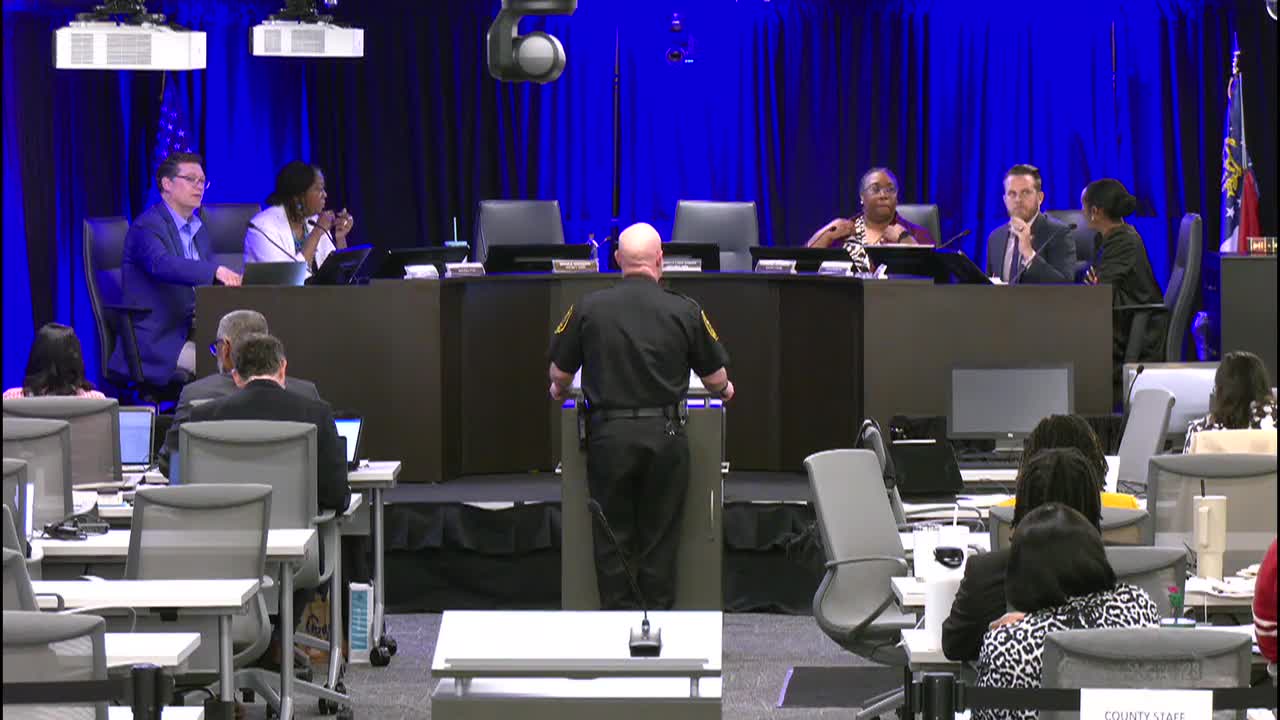Article not found
This article is no longer available. But don't worry—we've gathered other articles that discuss the same topic.
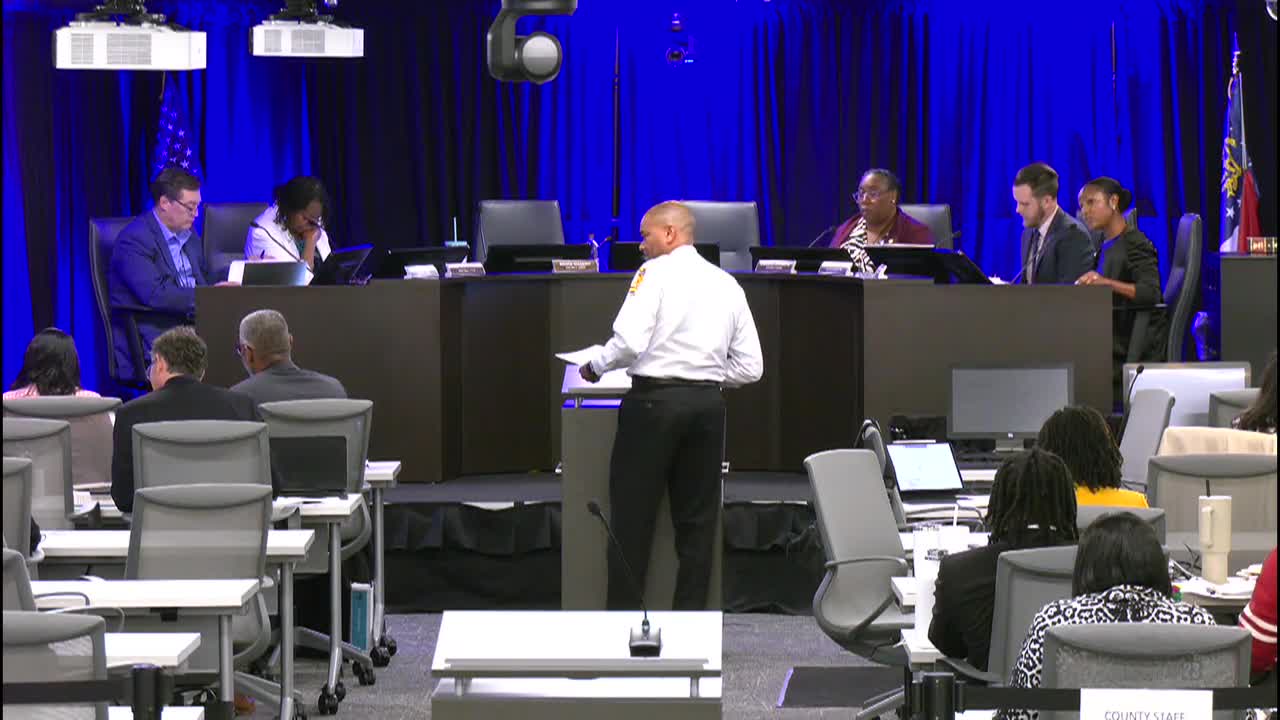
Commissioners discuss, then defer, resolution urging diversion for unhoused people instead of arrest
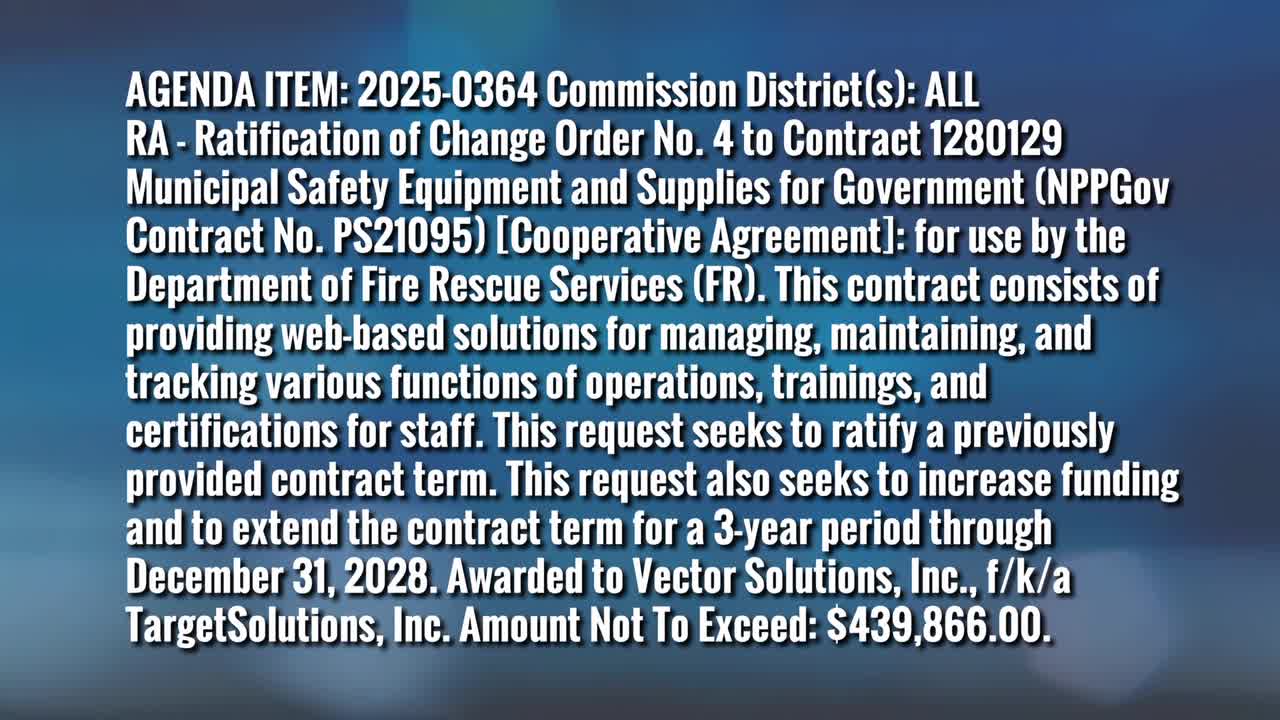
County extends and increases funding for web-based safety, training and certification software
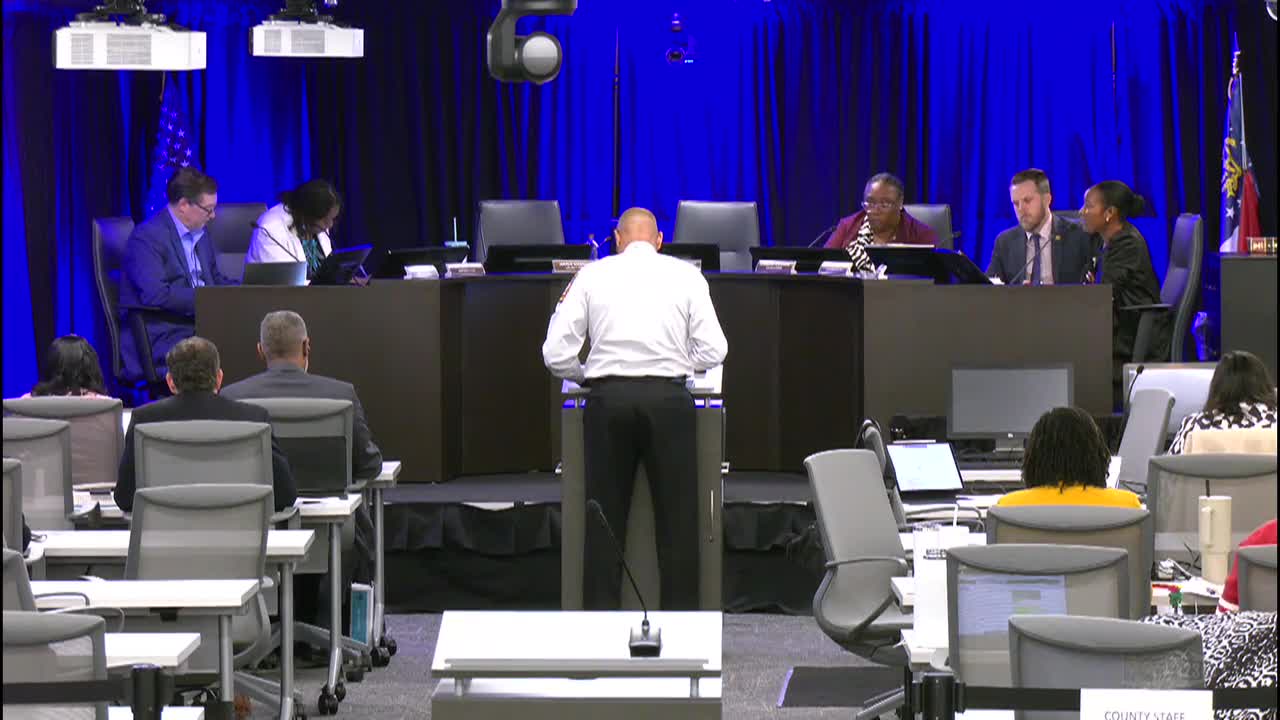
Committee renews medical and mental-health screening contract for Fire Rescue
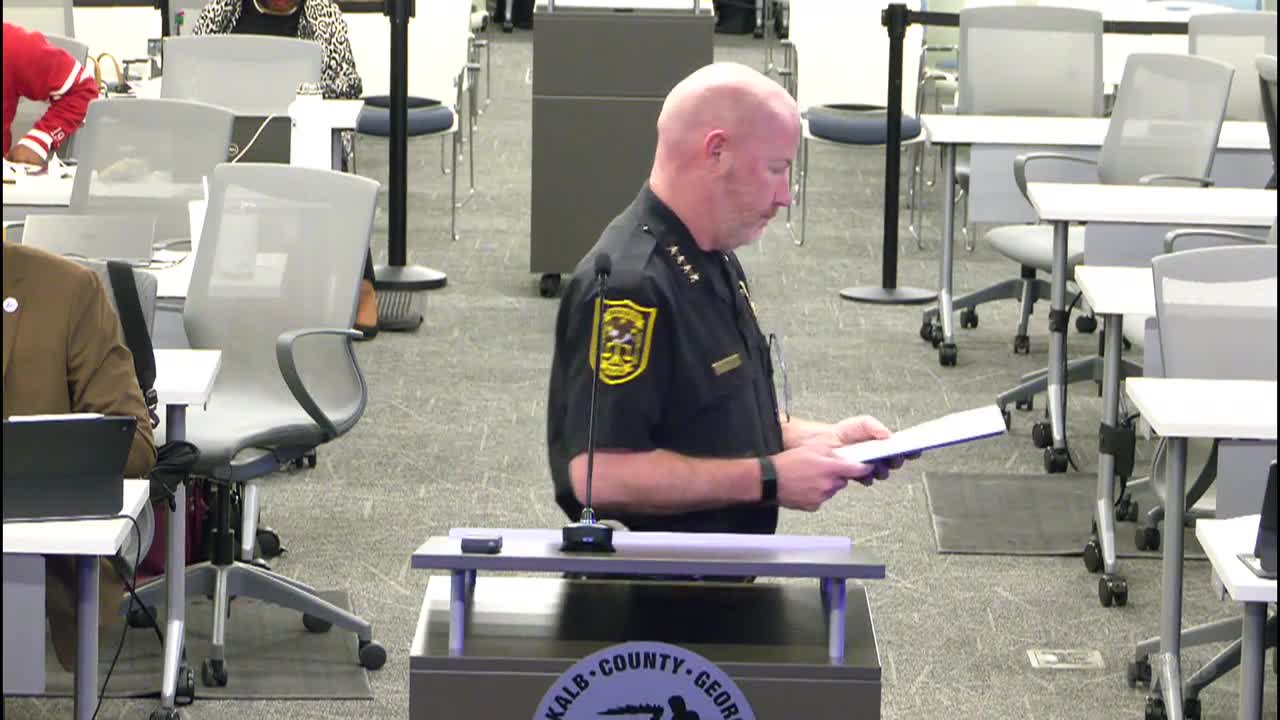
Committee increases funds for turnout-gear cleaning contract through October 2025
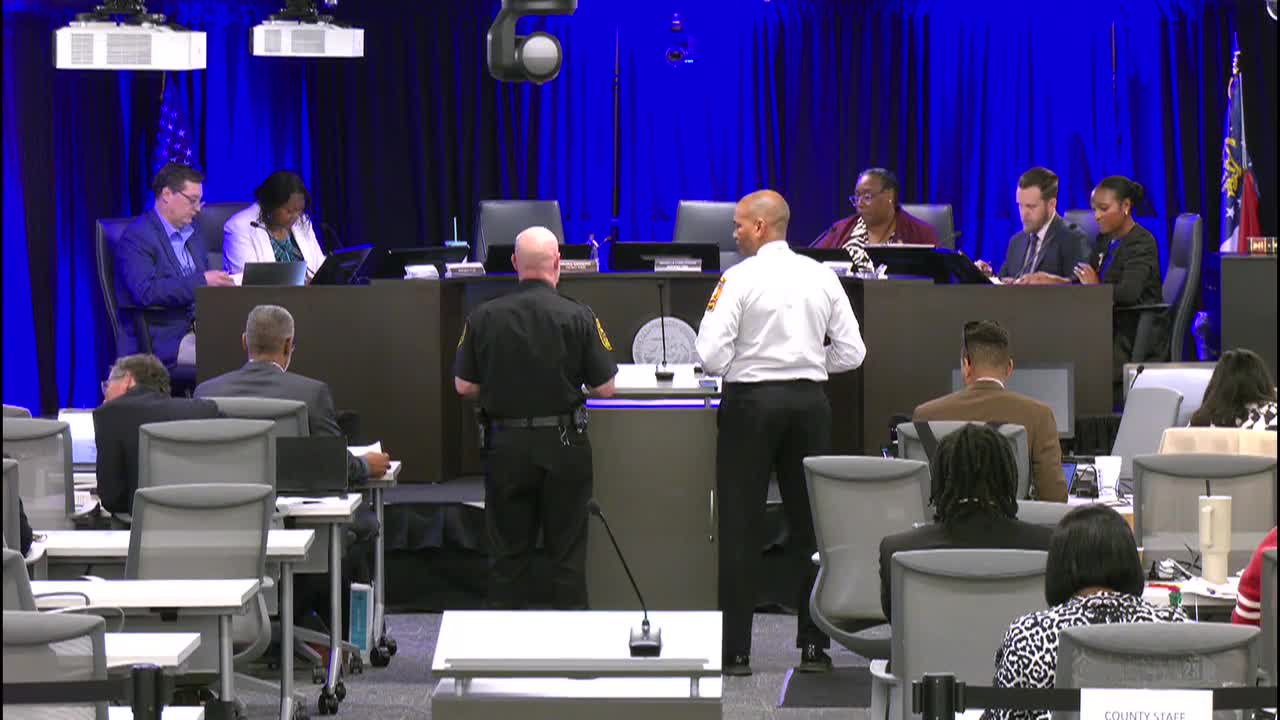
Committee ratifies fourth renewal of annual uniform contracts for police and E-911
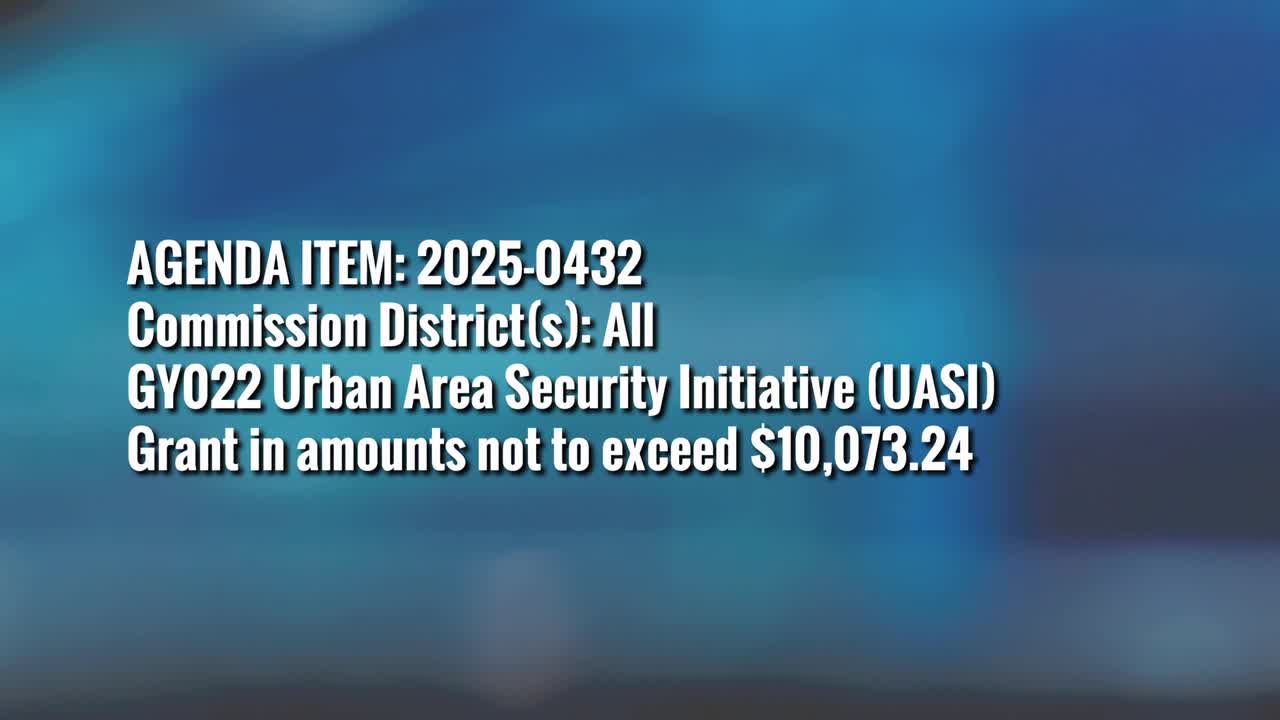
DeKalb committee approves Urban Area Security Initiative grant to buy binoculars, stretchers
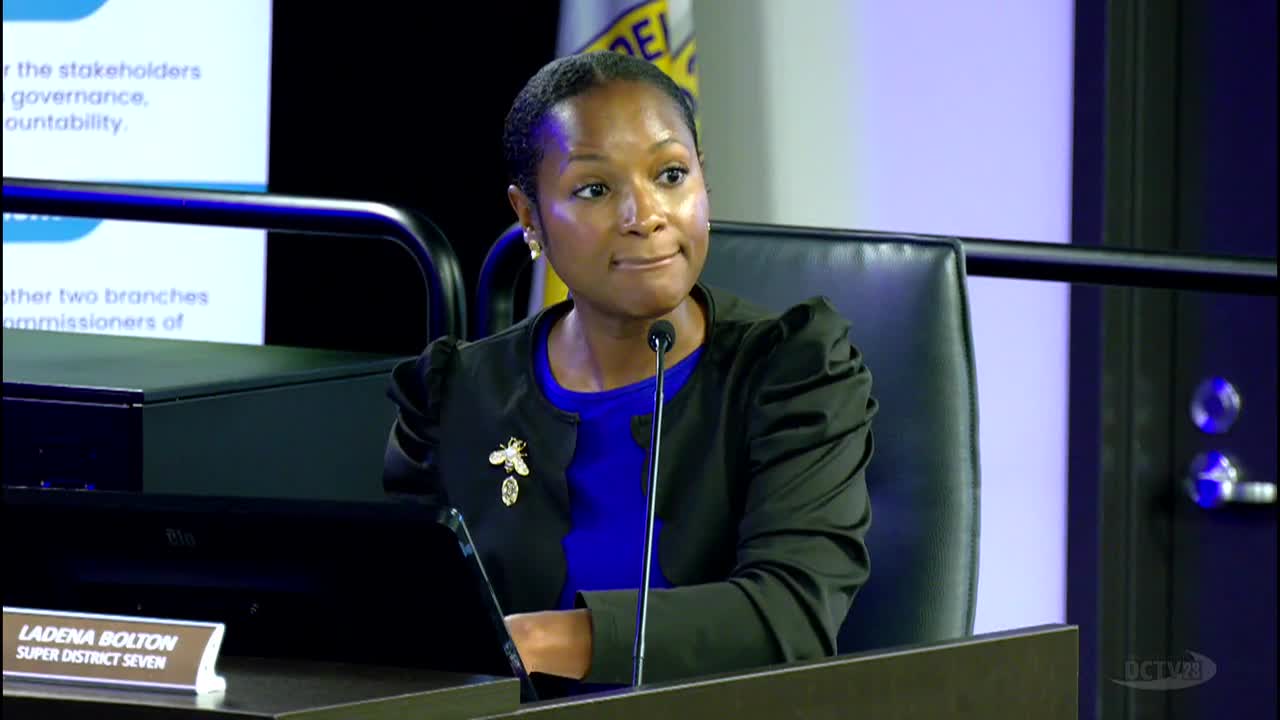
HR presents new-hire essentials checklist to standardize department onboarding
